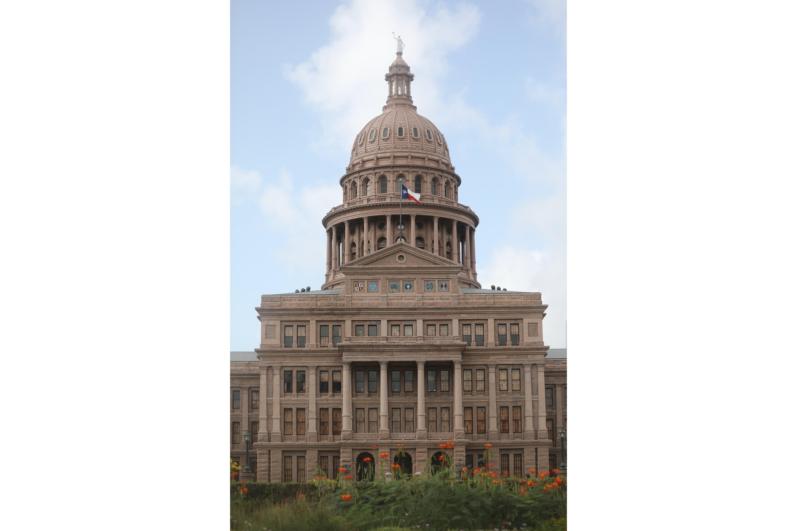Texas Supreme Court upholds ban on some transgender interventions for minors
(OSV News) -- The Texas Supreme Court upheld a state law on June 28 banning certain types of medical or surgical gender reassignment procedures for minors who identify as transgender, allowing it to remain in effect.
The law, Senate Bill 14, prohibits procedures and treatments for children in Texas "for gender transitioning, gender reassignment, or gender dysphoria and on the use of public money or public assistance to provide those procedures and treatments."
Justice Rebeca A. Huddle wrote in the court's opinion for an 8-1 majority that "we do not attempt to identify the most appropriate treatment for a child suffering fromgender dysphoria." She cast the court's ruling as a procedural matter and argued the challengers failed to demonstrate "a probable right to relief" under the state constitution.
"When developments in our society raise new and previously unconsidered questions about the appropriate line between parental autonomy on the one hand and the Legislature's authority to regulate the practice of medicine on the other, our Constitution does not render the Legislature powerless to provide answers," Huddle wrote. She said the Legislature "made a permissible, rational policy choice to limit the types of available medical procedures for children, particularly in light of the relative nascency of both gender dysphoria and its various modes of treatment and the Legislature's express constitutional authority to regulate the practice of medicine."
Previously, a state district judge ruled the law violated the rights of transgender children and their families to receive medical care, and violated doctors' abilities to follow "well-established, evidence-based" medical guidelines, putting them at risk of losing their license. That judge issued a temporary injunction blocking the law. Before ultimately upholding the law, the state's high court lifted that injunction in 2023, allowing the law to go into effect.
Supporters of restricting gender transition surgeries or hormones for minors who identify as transgender say such efforts will prevent them from making irreversible decisions as children that they may later come to regret as adults. Critics of such bans argue that preventing those interventions could cause other harm to minors experiencing gender dysphoria, such as mental health issues or physical self-harm.
Jennifer Allmon, executive director of the Texas Catholic Conference of Bishops, told OSV News in an email the conference supported the legislation "which prevents the advancement of gender ideology and protects the dignity of children by prohibiting gender transition."
Allmon pointed to a passage in "Dignitas Infinita," a recent clarification on Catholic teaching from the Vatican, that states "any sex-change intervention, as a rule, risks threatening the unique dignity the person has received from the moment of conception." "We support the ruling of the Texas Supreme Court to uphold this law for the protection of minors from irreversible harm caused by such procedures," she said.
In a statement, Ash Hall, policy and advocacy strategist for LGBTQIA+ rights at the American Civil Liberties Union of Texas, said in a statement, "This decision by the Texas Supreme Court allows the suffering caused by S.B. 14 to continue across the state."
"Our government shouldn't deprive trans youth of the health care that they need to survive and thrive," Hall said. "Texas politicians' obsession with attacking trans kids and their families is needlessly cruel. We will not stop fighting until our trans youth have the health care they deserve and our state is a welcoming place to all."
A 2022 study by the UCLA School of Law Williams Institute found that there are approximately 1.6 million people in the U.S. ages 13 and older who identify as transgender, with an estimated 300,000 of that population who are minors.
In guidance on health care policy and practices released in March 2023, the U.S. Conference of Catholic Bishops' Committee on Doctrine opposed interventions that "involve the use of surgical or chemical techniques that aim to exchange the sex characteristics of a patient's body for those of the opposite sex or for simulations thereof."
"Any technological intervention that does not accord with the fundamental order of the human person as a unity of body and soul, including the sexual difference inscribed in the body, ultimately does not help but, rather, harms the human person," the document stated.
Several Catholic dioceses also have begun grappling with pastoral approaches to gender dysphoria. Among them, the Diocese of Des Moines, Iowa, issued in 2023 guidance and policies on ministering to people experiencing gender dysphoria. It called for coherence with the church's teaching on the inseparability of gender from biological sex while emphasizing pastoral compassion for children or adults experiencing conflict between their biological sex and gender.
- - - Kate Scanlon is a national reporter for OSV News covering Washington. Follow her on X (formerly known as Twitter) @kgscanlon.



















